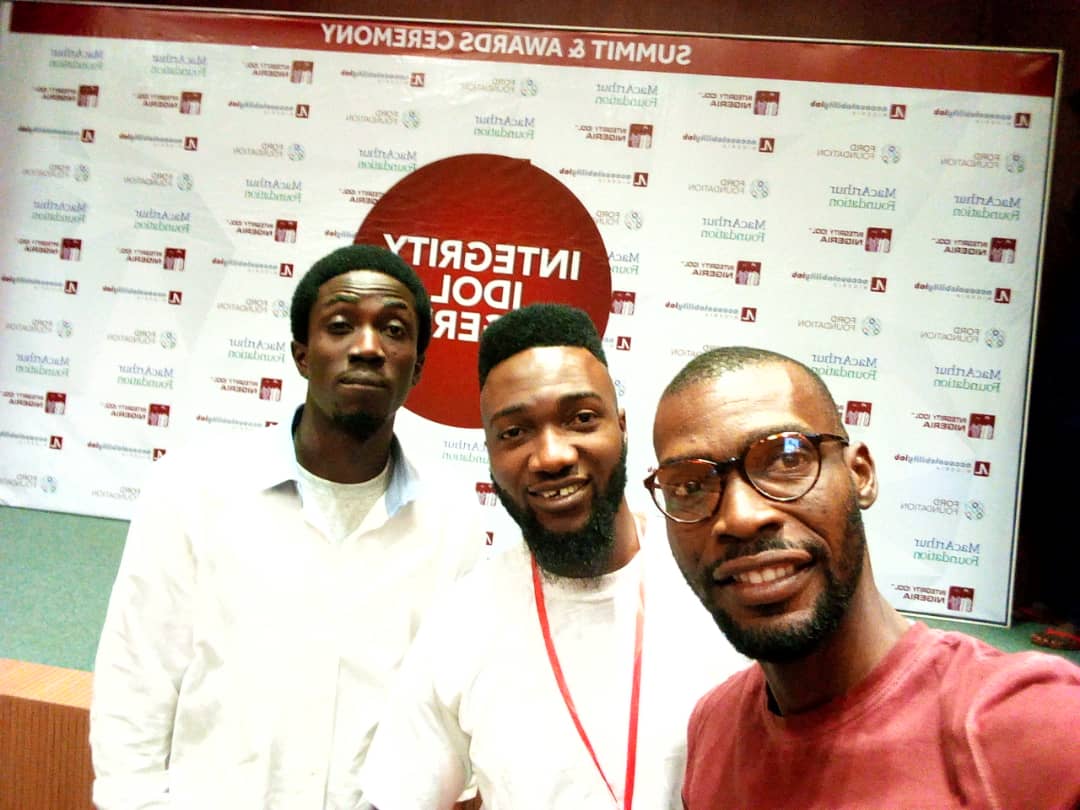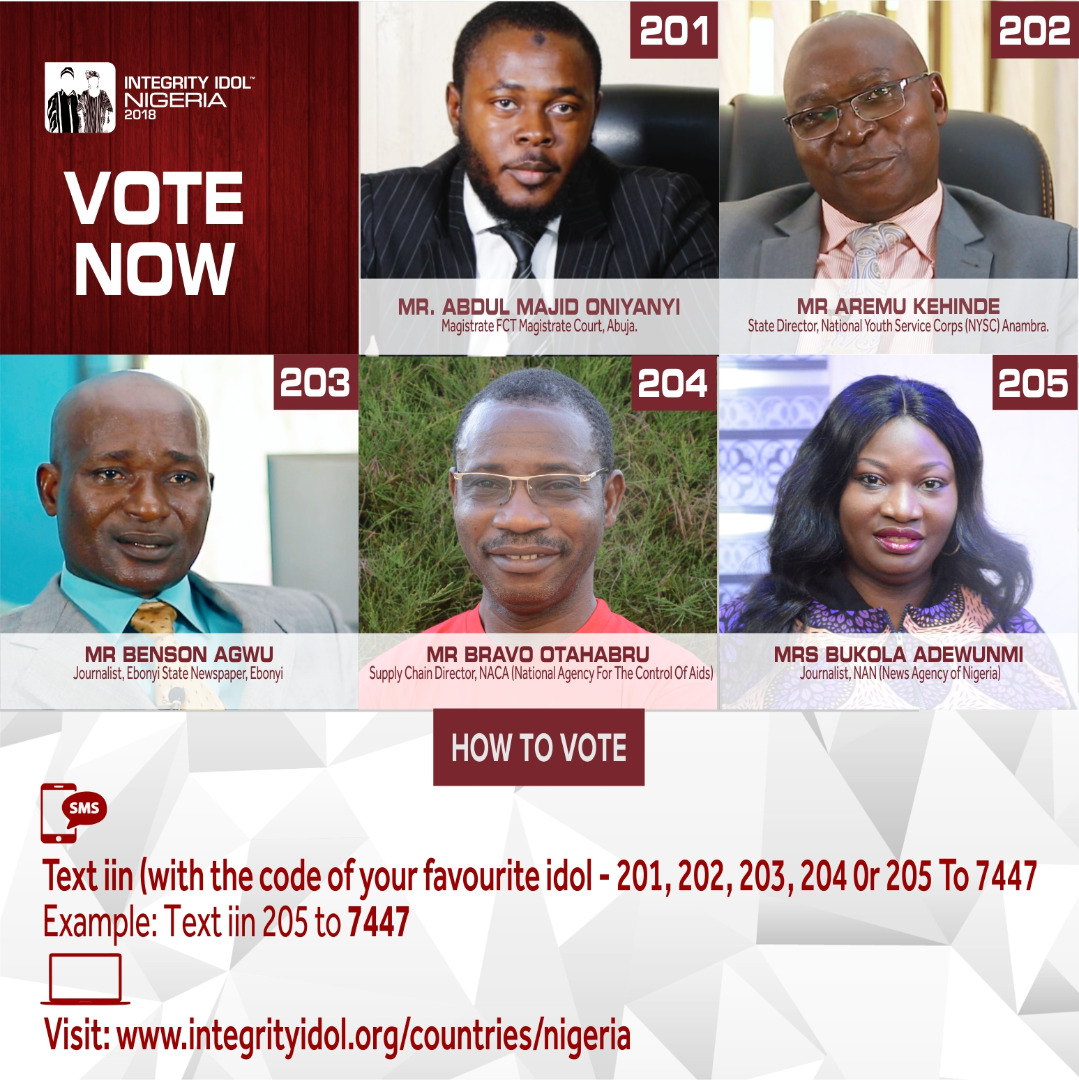Corruption is arguably one of the biggest issues facing Nigeria right now with accusations making the headlines of dailies, TV and radio news programmes. The country’s attempt to address this scourge is also evident when looking at its prominence in the national discourse: a major campaign promise of our current president was to ‘kill corruption’.
by Obinna Ejiogu
During nationwide debates, the one thing that is always agreed on is that the country has been handed all the resources necessary to succeed as an economic powerhouse. Even more so, developed nations remain willing to lend a hand whenever we fall into some setback or the other. We are constantly on the receiving end of grants and aid from the West. Our major hindrances to prosperity are internal challenges.
In my interactions with fellow citizens, I have found that many people are simply not aware of the damaging effects of corruption. There is an entire subset of Nigerian people that believe that corruption is normal and even necessary for society to function; that integrity is simply an ideal that is of little benefit to anybody. It is often expected that an individual will enrich him or herself while in public office and those who refuse to do so are seen to lack wisdom.
When former governor of Plateau state, Joshua Chibi Dariye was being sentenced by the court on corruption charges in June, he asked for mercy. His lawyer stated that he was ‘a victim of the long years of military administration and should be given mercy because he was ignorant of financial fraud and most of their components’. The fact that a public official could make such a plea in a court of law shows a complete lack of awareness of governmental roles and expectations. There is a need for people to be aware of both the moral and societal consequences of corruption.

Peterson, an avid reader and authority on the nation’s political affairs, is well versed in many of the misdeeds of past public officials. He was on the interview panel during the second verification stage of this year’s Integrity Idol campaign. ‘Integrity is a wide concept, but it can also pass for someone who is faithful, determined and places moral values ahead of selfish interests’ he stated. I asked him why he thought there was so much corruption in Nigeria, he responded; ‘we do not have a system that checks and balances the excesses of corrupt individuals. Nobody wants to go the extra mile to protect the rules and regulations of national institutions.’ He continued, ‘a story that stood out to me among the candidates was that of the secretary for a state civil service. Before he attained that position people tended to do things without knowing the consequences of their actions or choosing not to care about said consequences. He put many counter measures in place and brought synergy among the workers as a result’.
He goes further to say; ‘what Integrity Idol does is to sensitize the populace on the importance of integrity. I think that value building needs to be included in the national school curriculum. Let it be that from a tender age, the child learns of the values of integrity. We need to introduce the concept to them in their formative years so that it does not sound alien to them when they are adults.’
Another colleague offered to share a little more on the meaning of integrity. Alfred, who goes by the stage name ‘Alfyzo’, is a gospel rap artist in his spare time. Alfred interviewed 16 individuals during the selection process. ‘Everybody has their own definition of integrity’, he goes on to say, ‘what I tend to do is ask people what integrity means to them and judge them based on their own model of integrity first. Generally, we all have an idea of what integrity means; but if you can’t keep to your personal definition of integrity, then you’ve already lost the first step.’
I had intended my interview with Alfred to be short and swift but by the time we were done, I felt like I had left a philosophy class. I guess that’s the general effect that this process has on people.
‘Two stories stood out to me the most,’ he stated. ‘One of them involved an individual who worked with the judiciary. He chose to maintain his integrity even when it caused rifts between him and his co-workers. As a lawyer, he was constantly offered bribes but he never succumbed to the level of influence the job comes with. He stands for what is right always, but what does he get in return? His house was broken into, his children tailed from school and even his torso lacerated by hired bandits. For someone to go to that extent to maintain his moral compass, putting his life at risk even, he truly deserves the nod from me.”
‘The second story was a female welfare manager at a neuropsychiatric hospital. The patients never saw her as an employee but viewed her as a mother instead. She fought for the inheritance of certain patients whose relatives would try to take advantage of their situation to enrich themselves. She would maintain huge sums of money on their behalf and not a penny would go missing. If you want to know the true merit of a person’s character, give them money and give them power, then you will see how much of their values remain uncompromised.’
Despite his strong stance against corruption, Alfred does not believe that it originates from the person. I had initially asked what difference he thought the Integrity Idol Awards would make in society, the answers I got were way more existential than I could have hoped.
‘When you turn on the TV, the radio, open up a newspaper, what do you hear? What do you see? – stories of embezzlement, kidnapping, violence; did I miss anything? Integrity Idol is giving people a different focus, a different side of the story. What people see and hear is what they tend to assume is the whole picture. We need to show them that there is actually good in Nigeria, that there are good people willing to give their all to certain positions if given the chance. Accountability Lab is building a new generation of individuals with accountability and transparency, people that can be trusted and will inspire others to be trustworthy in turn.’
Alfred believes that the fight against corruption has not truly begun until it starts from the grassroots.
‘Corruption is rampant because the youth are brought up with the wrong mindset. There are so many influences pushing the child to form a damaging mindset about Nigeria because no one wants to be left behind. As a child, if you see your friend perpetrating evil and succeeding, chances are you start to believe they are doing the right thing, and that mindset carries well into adulthood.’
To curb the spread of corruption our children need a strong education, not just on intellectual matters, but on moral matters as well and like President Mohammadu Buhari said on the 2018 International Anti-Corruption Day while speaking at the Africa Youth Congress Against Corruption (AYCAC) event, ‘African youth must remain the front and centre of restoring traditional African values of probity, integrity, honesty, diligence and hard work. It is only when the youth drive this change, that corruption will be eliminated!.’
Obinna Ejiogu is a creative writer, music producer and Medical Lab scientist. He has worked with the AL Nigeria team for about five (5) months and believes that integrity is necessary for a progressive society.
The Integrity Idol campaign hopes to inspire a new generation of effective public servants and generate conversations between communities, friends and family members around the idea of integrity and personal responsibility. To learn more about the campaign please visit integrityidol.org.
